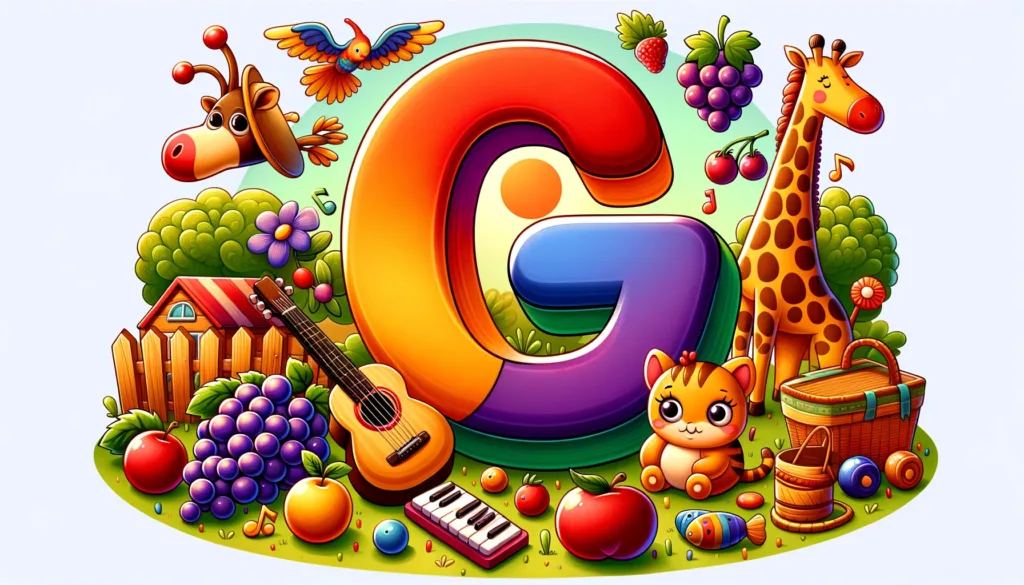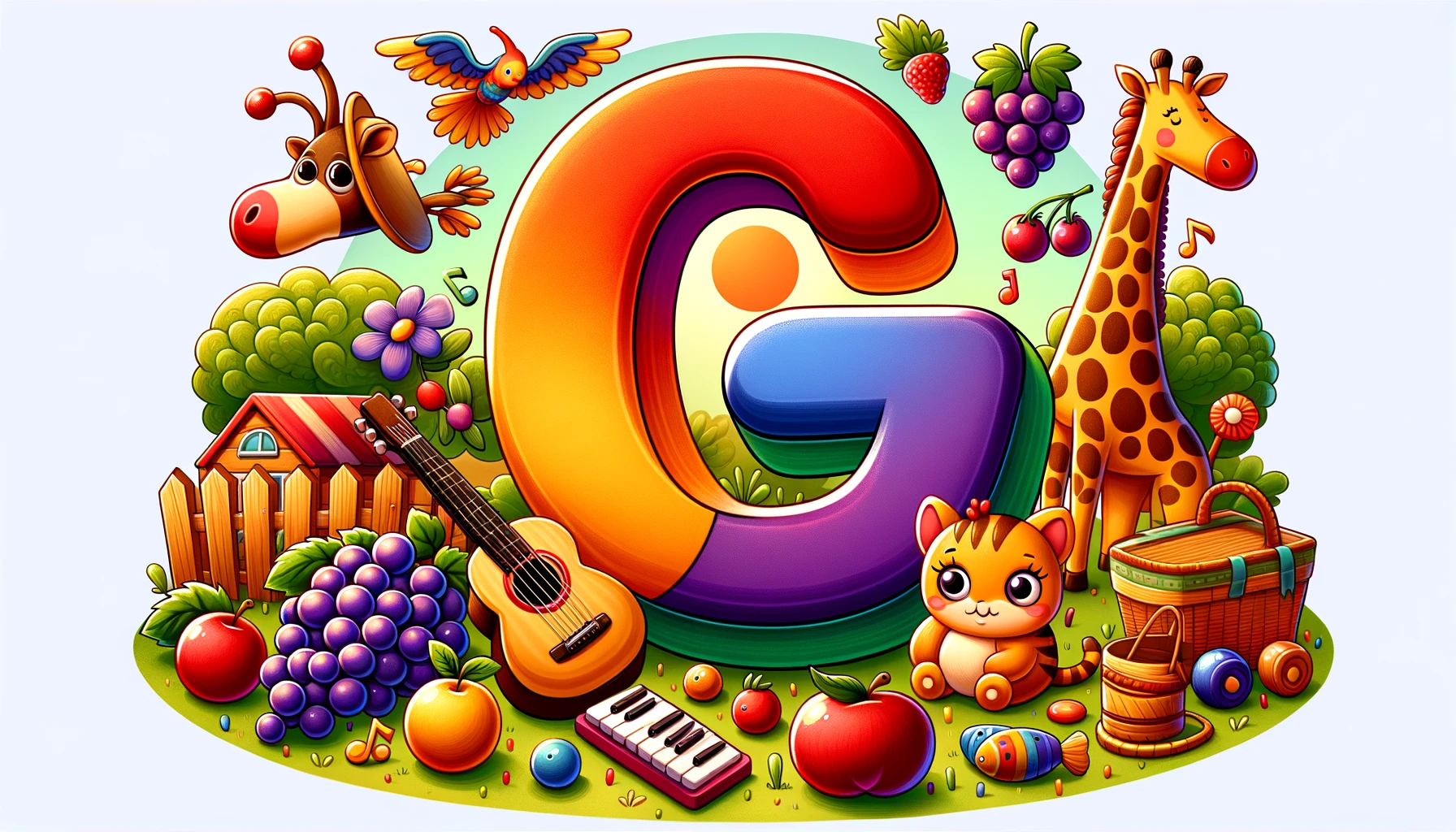G
The letter “G” is the seventh letter in the Latin alphabet, which is used in English and many other languages. Its history and characteristics are quite interesting:
- First, Origins: The letter “G” originated from the Latin alphabet. It was developed by the Roman consul Spurius Carvilius Ruga around the 3rd century BCE. He modified the letter “C,” which represented both the /g/ and /k/ sounds, by adding a small horizontal stroke, creating a new letter for the /g/ sound. This was done to distinguish between these two phonetic sounds in the Latin language.
- Second, Capital, and Lowercase Forms: The uppercase “G” usually has a rounded shape with a right-facing horizontal line in the middle. The lowercase “g” generally comes in two forms: the single-story “g,” which resembles a circle with a rightward tail, and the double-story or loop-tail “g,” which has a distinct loop at the bottom.
- Third, Phonetic Usage: In English, “G” represents a voiced velar plosive sound, as in “goat,” or a voiced postalveolar affricate, as in “gem.” The pronunciation can vary in other languages or in different English contexts.
- Fourth, In Mathematics and Science: “G” has various applications in these fields. In physics, “G” represents the gravitational constant. In mathematics, it can denote a general group, and in chemistry, “G” is the symbol for the element germanium.
- Fifth, Cultural Significance: Beyond its linguistic use, “G” can symbolize different things in different contexts. For example, in the American grading system, “G” is not typically used as a grade, but in other contexts, it might stand for ‘good’ or ‘great.’
- Sixth, Typography: In typography, the design of the letter “G,” especially the lowercase form, is a topic of interest due to its unique shape. The different styles of lowercase “g” can give a font a distinctive character.
- Seventh, Digital Representation: In ASCII, the computer coding system, the uppercase “G” is represented by the number 71, and the lowercase “g” by 103.
The letter “G” thus carries a rich history and serves multiple roles across language, science, mathematics, and various cultural contexts.

<ⓒ WizardMedics (wizardmedics.com)>



